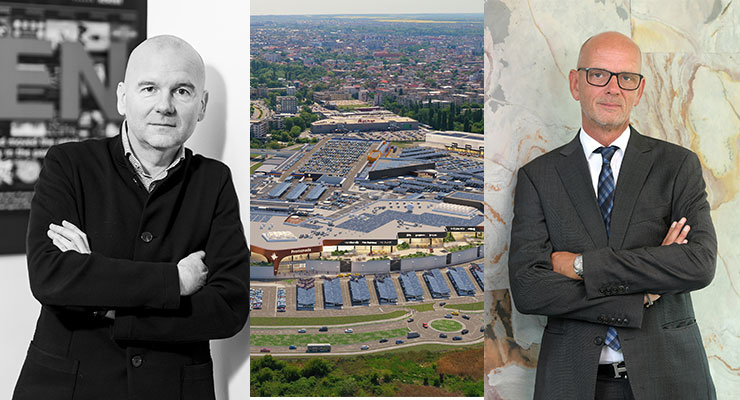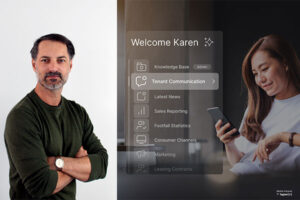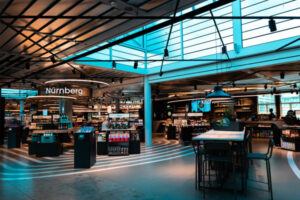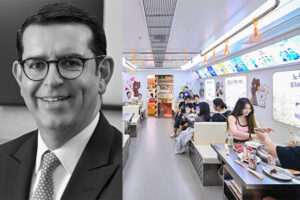ACROSS: You are one of the most experienced managers in the industry – someone who has inside knowledge about a number of companies and has lived through a wide range of retail periods. What are some of the biggest changes that you have seen in the shopping center world over the course of your career?
Rüdiger Dany: Our business is based on the premise that we are a marketplace and that we offer a combined range of products and services. That has consistently remained the case over time. The biggest changes have always been driven by consumers and new generations. As a result, the major changes have always taken place in the retail area. The most significant transformation has, obviously, centered around online retailing – and the associated combination of consumer behavior and technological advancements. As monumental as the changes have been, the principle has remained the same for the last 200 years: retail is in a constant state of reinventing itself, and there are always concerns about retailers’ ability to adapt. I am certainly on the more relaxed and realistic side of things. Change is a given, but it does not happen overnight. Even prior to the COVID-19 pandemic, our industry was criticized for a number of things, especially by investors, but many of the things for which we were faulted for didn’t actually come to pass. Based on how things currently stand, I can safely say that our industry is undervalued.
ACROSS:Nepi operates throughout Eastern Europe. How did that particular geographical region become an area of focus?
Dany: The answer to why our geographical focus is as it is can be found in our shareholder base. Approximately 80% of our shareholders are from South Africa. They include South African pension funds and companies that were looking for opportunities to invest their money in Europe, 14 years ago. The investments were growth-oriented and, as such, were associated with higher risk at that time. NEPI was established in Romania and grew at a rapid pace. The subsequent merger with Rockcastle brought more South African money into the company, which was invested in Poland, in particular. The management team saw synergies there and further expanded the company. Nowadays, most of our investors still want to invest in emerging markets – not in saturated markets, such as those in Western Europe. It is an interesting strategy, which has become particularly apparent in the wake of the pandemic.
ACROSS: Which of the countries in which you operate is the best performer at present, and where is the most enjoyable place to do business?
Dany: After the first half of 2022, we had already exceeded our 2019 sales by 8 %. The best year in NEPI Rockcastle’s history was 2019, especially in terms of investors and dividends. Overall, we have seen a very strong increase in our operating results. Needless to say there are some variations. Bulgaria and Romania stand out as the highlights. The biggest growth has occurred in Romania, where the increase is in the double digits. Romania accounts for roughly 35% of our portfolio. Croatia, however, is also performing well. The euro is due to be introduced there soon, which will also prove beneficial for us. Poland is seeing growth as well, although not at the same pace as the rest of the portfolio. The market there is more saturated.
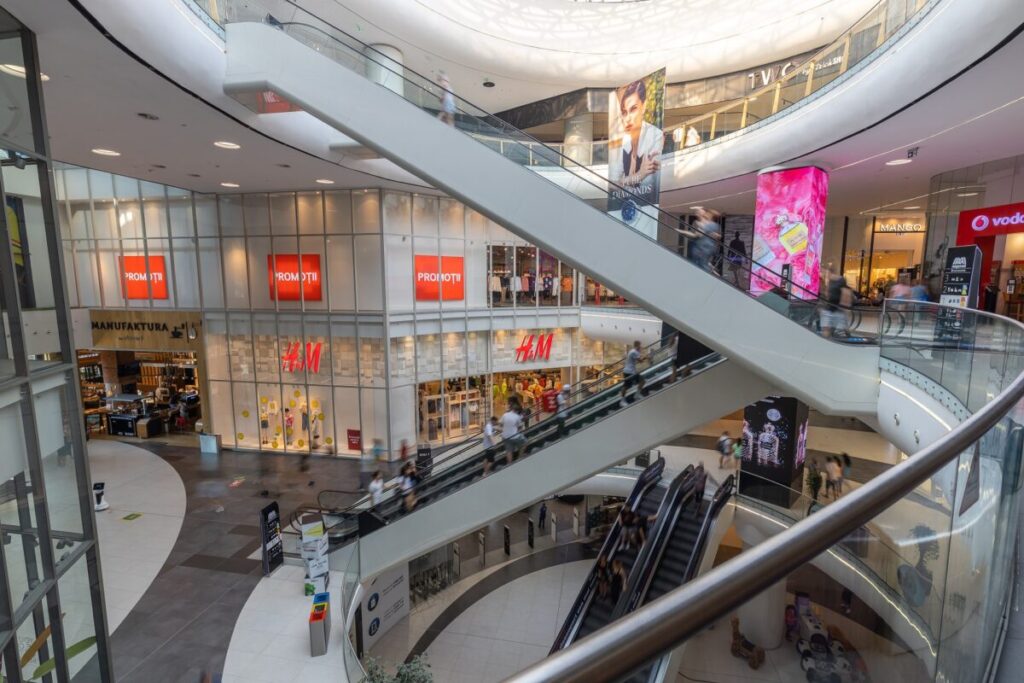
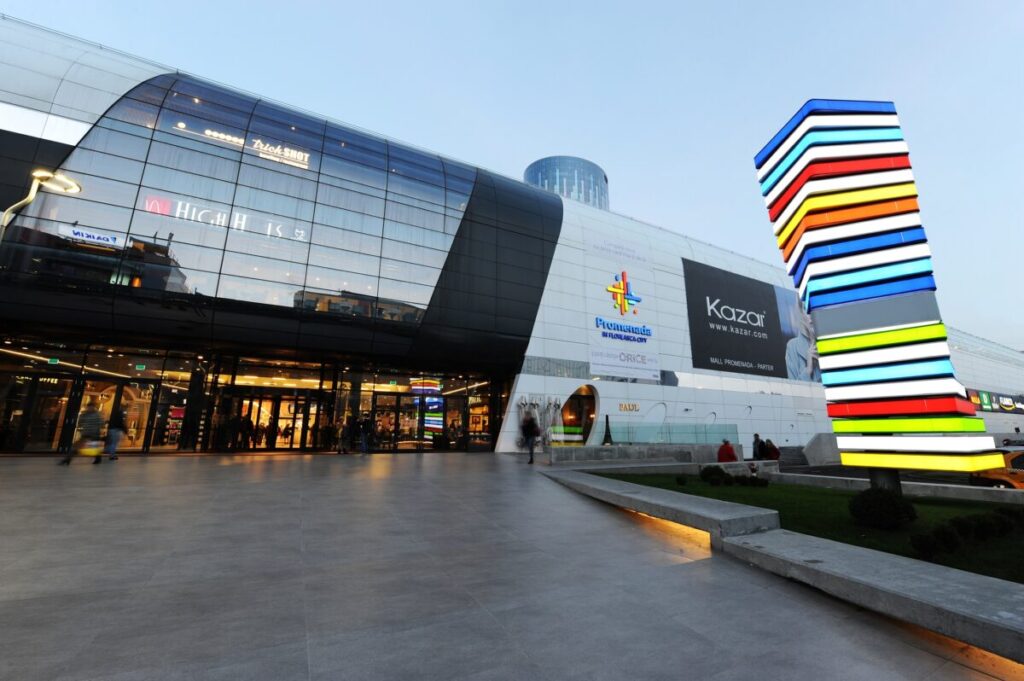
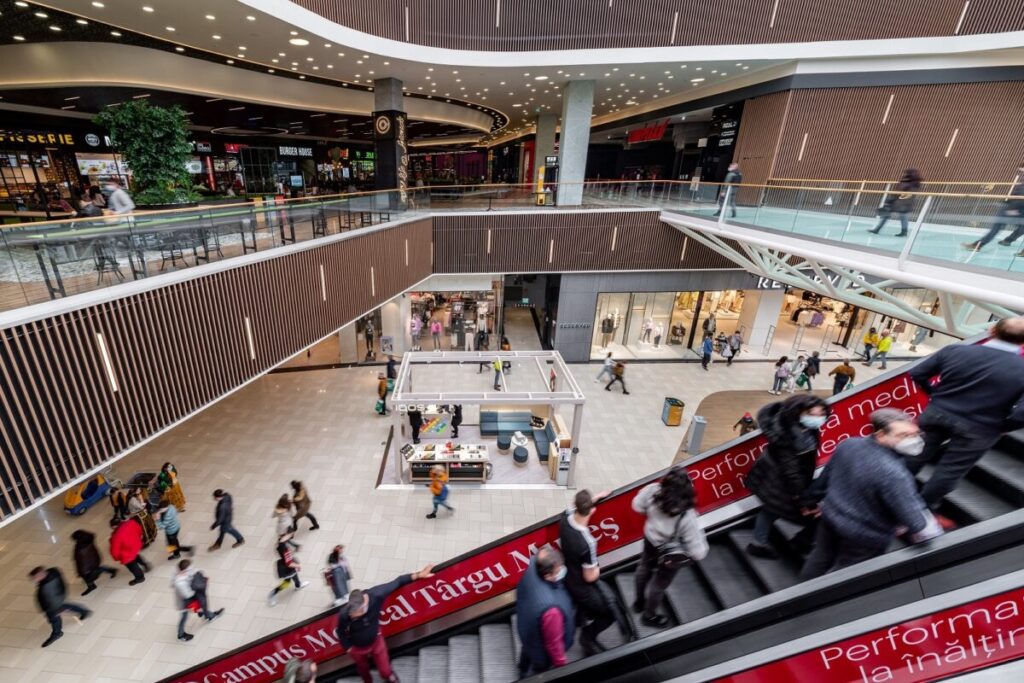
ACROSS: That is in stark contrast to countries in Central and Eastern Europe, where, in some cases, reaching the numbers seen in 2019 is a long way off.
Dany: Post-COVID recovery has progressed at a much faster pace in our markets. This is also reflected in the inflation concerns that everyone is preoccupied with, but which have had less of an impact on us so far. At the moment, our sales are growing disproportionately, so OCRs (Occupancy Cost Ratio) are also at the 2019 level. Therefore, business for our retailers is quite positive and healthy, and we certainly hope that it stays that way.
ACROSS: Is Nepi focusing on new countries as well?
Dany: No, our attention is focused on Central and Eastern Europe. Those are emerging markets, and we know exactly how to operate in them. It also makes sense, especially if you look at the forecasts regarding how purchasing power will develop in the various regions over the next 10 years. In Western Europe, the markets are very saturated, whereas the markets in which we operate have completely different growth expectations, because they need to be developed first. We have a development pipeline of €660 million in assets under construction. They include greenfield developments, in other words, brand new shopping centers. That is such a rarity in Western Europe nowadays. We intend to add 10% of our current GLA to the portfolio over the next four years. The largest expansion, which amounts to more than 50.000sq m, is being built in Bucharest. A retail property is being expanded there, and offices are being built on top of it. We are opening a new center in Craiova in the fall of 2023. It covers an area of roughly 63,000 sq m, plus an adjacent retail park measuring 10,000 sq m. We are in the middle of the approval process for a 60,000-sq m shopping center in Plovdiv, Bulgaria. I hope that we will be able to kick things off there in the spring of next year. We have also purchased another plot in Galați, Romania. We already have a shopping center in the north of the city, and we are currently building a retail park that covers more than 30,000 sq m in the south. Those are some of our milestones in the shopping center and retail sectors. Of course, we are also investing in our existing assets.
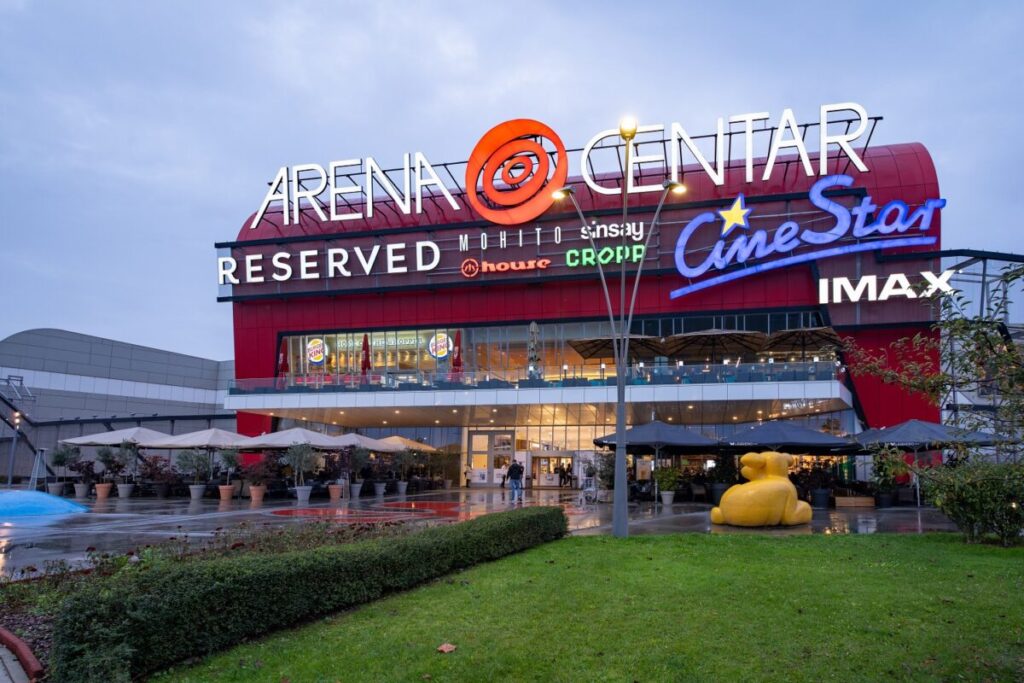
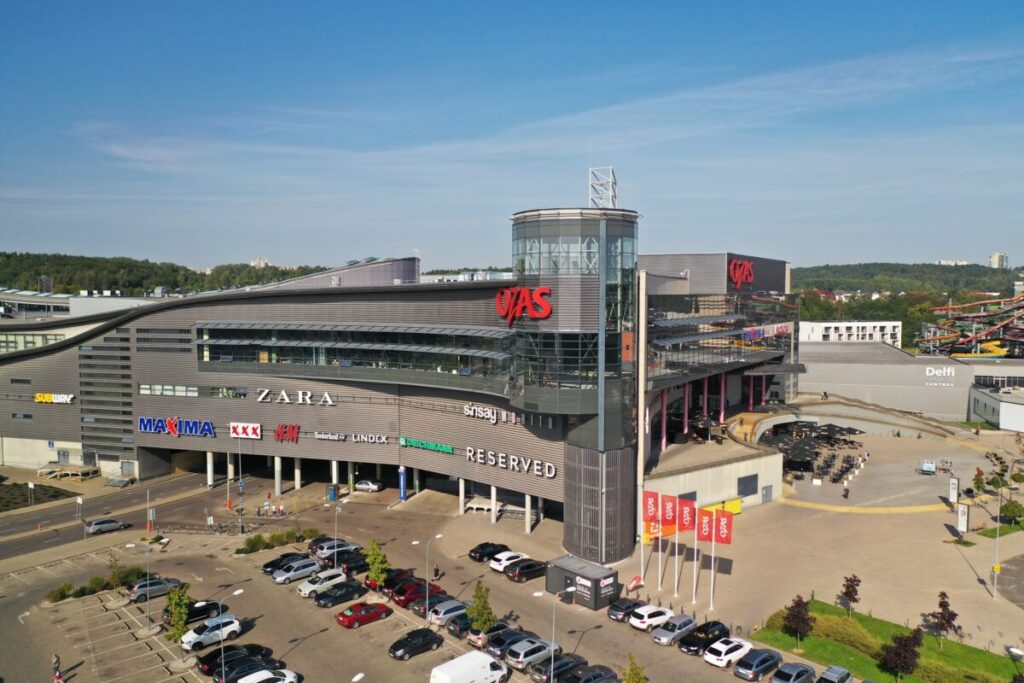
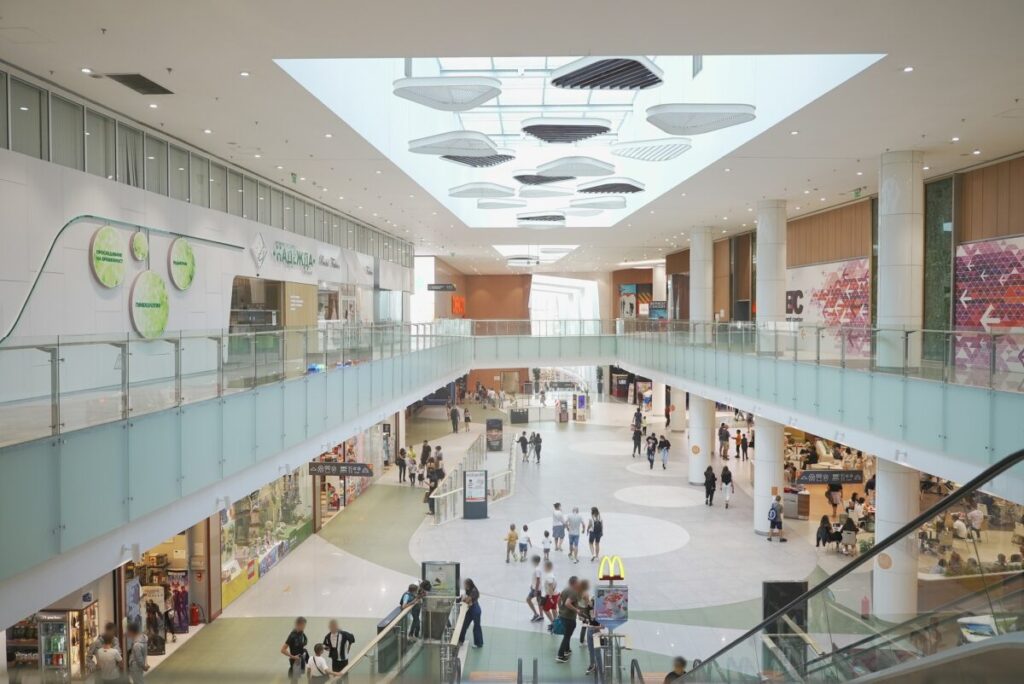
ACROSS: How are issues such as rising prices for building materials, longer delivery times, and energy, in general, being dealt with on your projects?
Dany: All our projects were commissioned last fall. Therefore, our costs are capped. So far, we have managed to avoid incurring additional costs. For projects like the one in Plovdiv, which has yet to be commissioned, a close look at the market situation will need to be taken. Fortunately, we work in close cooperation with our construction companies. It all boils down to dealing with issues intelligently and, most importantly, choosing the right partners. After all, if I have negotiated excellent prices, that effort is useless if the building contractor goes bankrupt.
ACROSS: Retail is clearly your main focus, but what is your overall portfolio comprised of?
Dany: Retail is our predominant focus and will certainly continue to be so. Of course, we always take mixed use into consideration and determine where it might be appropriate. In the case of our project in Bucharest, such usage makes quite a bit of sense. Our property is located in the business district, which is where the people with the highest incomes in the country live. That being said, we always develop projects that include shopping centers. The core of our business will always be retail.
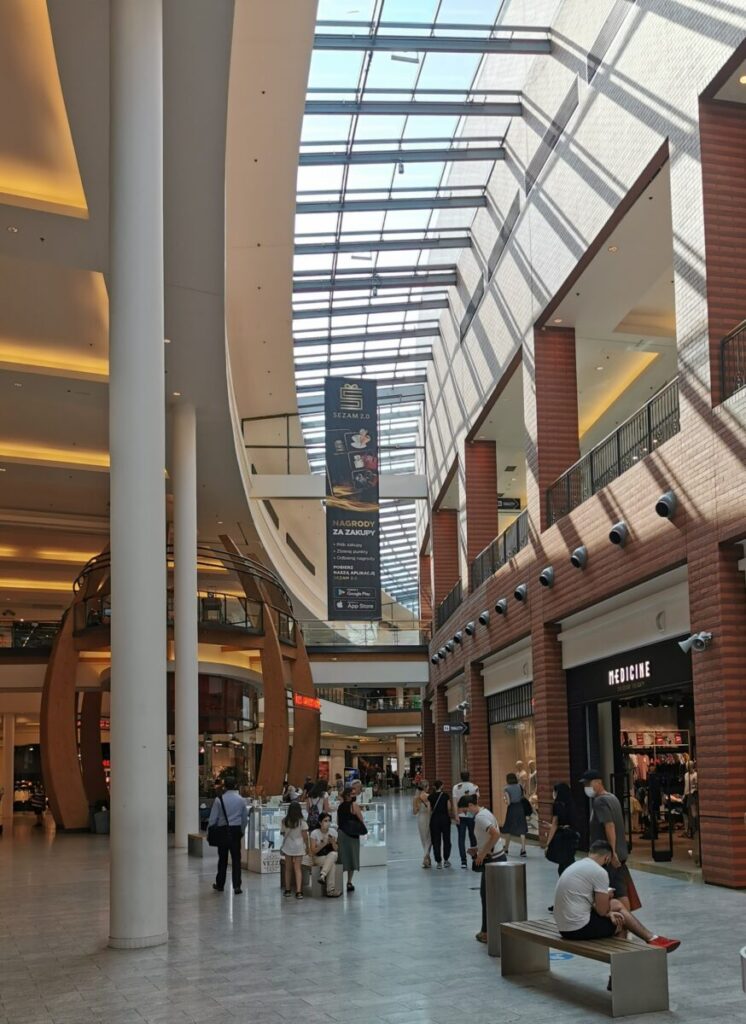
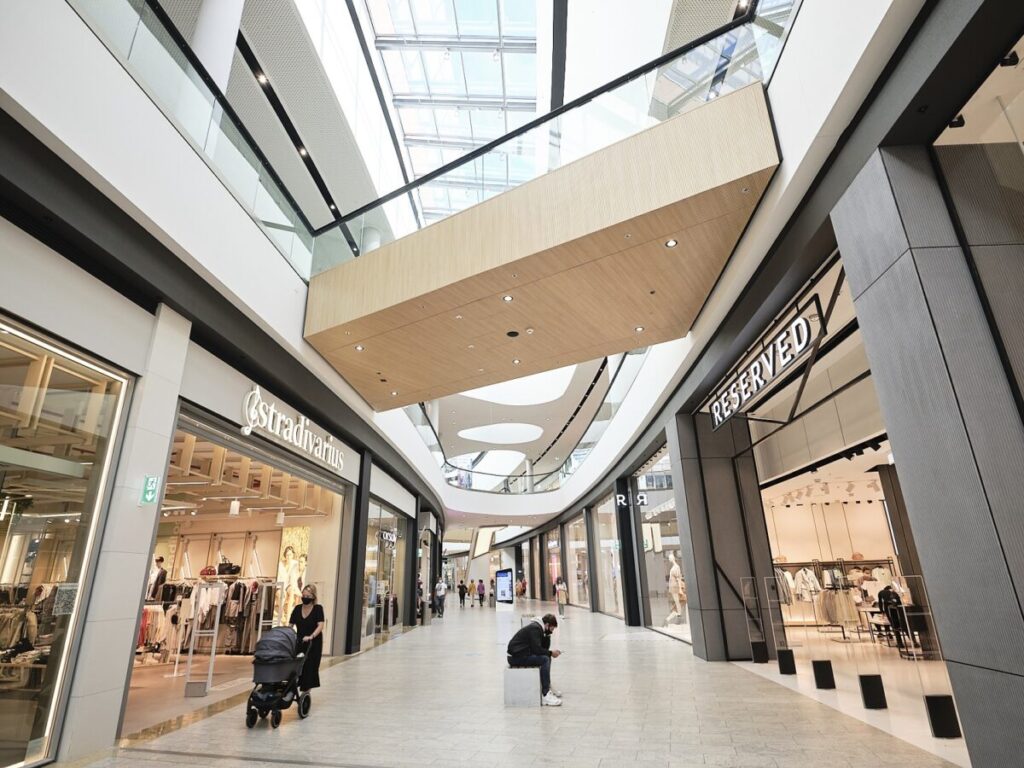
ACROSS: Other developers, in contrast to you, are clearly focused on retail parks. Why are you so committed to shopping centers?
Dany: First of all, sticking with shopping centers makes a lot of sense, because the return opportunities for investors are great. That is exactly what we are proving right now. In my opinion, retail parks have greatly benefited from the fact that they were less hit by restrictions during the height of the COVID-19 pandemic. People could just park right out front of them, walk in, then walk out. Therefore, retail parks next to our shopping centers are a completion of our retail offer. Our focus, however, is on experience. A retail park is a lot of things, but it is not an experience. We still firmly believe that people enjoy coming together and that shopping centers are, therefore, much more than just a means of satisfying needs. When we look at our footfall in Bulgaria, for example, we see that that is very much the case: people want to shop and spend their time there. Obviously, the mentality there is different from that in Northern and Western Europe. The online penetration rate is significantly lower. Brick-and-mortar retail accounts for 95% of sales there.
ACROSS: What exactly does “experience” mean these days? What are the latest trends?
Dany: Most recently, there has been a major trend toward increased gastronomy as well as a trend toward more experiences in terms of entertainment. I think that still remains the case. The cinema is a prime example. People have started to return to cinemas. We have not reached the levels we had become accustomed to yet, but as soon as we are able to show blockbusters at cinemas again, the concept will work as expected. Entertainment and gastronomy make up a significant part of the experience mix. However, there are some new concepts as well. For example, we are considering introducing theatrical experience. We are currently in talks with companies that operate musical shows and are interested in a permanent location. As I see it, there are still a lot of ways to generate interest in our product.
ACROSS: Let us take a look at the retail side: What new concepts are standouts right now?
Dany: A lot of Western brands are pushing into Eastern European markets, which has been well received. That is simply due to the fact that sales and return expectations are higher there. For example, leading companies such as Inditex are opening 4,000 sq m stores with brands like Lefties. Another example can be found in Primark’s entry into Poland and Romania. Similarly, brands such as JD Sports are opening in Romania. Thanks to our 56 assets, we are the first point of contact for brands interested in Central and Eastern European markets. Many retailers are making such a move right now, especially in Poland, as exemplified by Half Price. The demand for space is quite high. That fact is also reflected in the reduction in vacancies. Retailers such as Peek und Cloppenburg and Carrefour have already signed contracts at new properties, such as the one in Craiova. I also think that COVID-19 has helped us in that respect. Numerous retailers realised that online retail is not able to deliver the profitability they want. In addition, retailers that were very active in Russia and Ukraine must not be forgotten. LPP Group, for example, had significant number of stores in Russia. They lost that revenue virtually overnight. They are working to replace those losses in our markets.
ACROSS: While online retail is less prevalent in your markets, are attempts still being made in the online arena to partner with retailers?
Dany: As landlords, we have to have an omnichannel strategy. However, our world is a little different there as well. Amazon is barely present in our markets, but there are more local online marketplaces, such as eMAG. So far, no cooperation agreements have been forged. However, we have created our own marketplace at Paradise Center in Sofia, Bulgaria, for example. It is only a pilot project, but things are going well at the moment, and we are learning more and more each day. Our Spot project also makes up part of our strategy. Spot is an enhanced loyalty program that uses big data collection. To date, it has been rolled out in six countries. It allows us to address our end consumers in a completely different way.
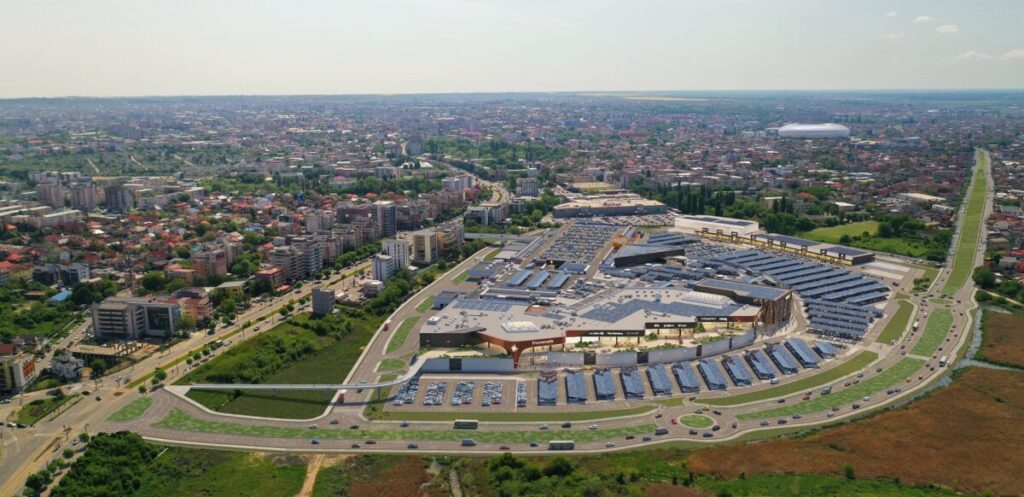
Craiova – A New Development Designed in Line with the ESG Strategy
Alternative solutions are key: A 63,700 sq m shopping center is being built in Craiova, a Romanian city with a population of 300,000 people. Photovoltaics could not be installed on the roof, because a parking area is already in place. As a result, the photovoltaic systems are due to be installed above the parking areas in front of the center. The result is twofold: on the one hand, protection from the sun and rain will be provided for parked cars, and on the other hand, an alternative place for energy generation will be created.
ACROSS: Where do you stand on the issue of ESG?
Dany: That is a very important topic for our industry. Online commerce has brought about considerable change over the last few years, but compliance with ESG will be the challenge of the future. It involves a change in consciousness, not just a regulatory one. A corporate approach that really incorporates ESG into every activity of a company is required. A company of our size can no longer justify itself to investors if it does not comply with all of the criteria. We are not talking about things that are nice to have – we are talking about must haves. When you talk to analysts, the first question they always ask is about ESG scoring. Thanks to the major investments that we have already made, which go far beyond concepts such as charging stations for e-cars, we are on the right track. The installation of photovoltaic systems has been planned for our entire portfolio in Romania. In other words, we are currently building sustainable energy generation at 30 different locations. We will install approximately 40 Mwh of solar panels. Not only will that reduce our carbon footprint, but it will also prove to be a profitable investment. Therefore, the E, the environmental part of ESG, in particular, not only entails rising costs, but additional opportunities for returns as well. We are investing a total of 37 million euros in sustainability and renewable energy in Romania. The next step will involve the implementation of such projects in other countries as well. Obviously, not only does each country have its own regulations, but different conditions also prevail when it comes to the amount of sunshine and the weather. We are currently testing a number of unique solutions. In addition to reducing CO2 emissions, an entrepreneurial question is also being asked: How can an additional source of income be generated for our company? There is quite a lot to it: ESG is not just an obligation, there is money to be made from it. For example, the fact that our industry already owns large plots of land is a major advantage. The infrastructure that many others need to establish is already in place in our industry.
ACROSS: To what extent will the issue be played out with respect to consumers?
Dany: Young people, in particular, have a different attitude towards environmental issues these days. They ask many more critical questions. Getting my driver’s license and a car were symbolic of the ultimate freedom for me when I was 18, but things are completely different today. Younger generations of customers have different views and values. That is precisely why it is so important that they see and experience what we do.
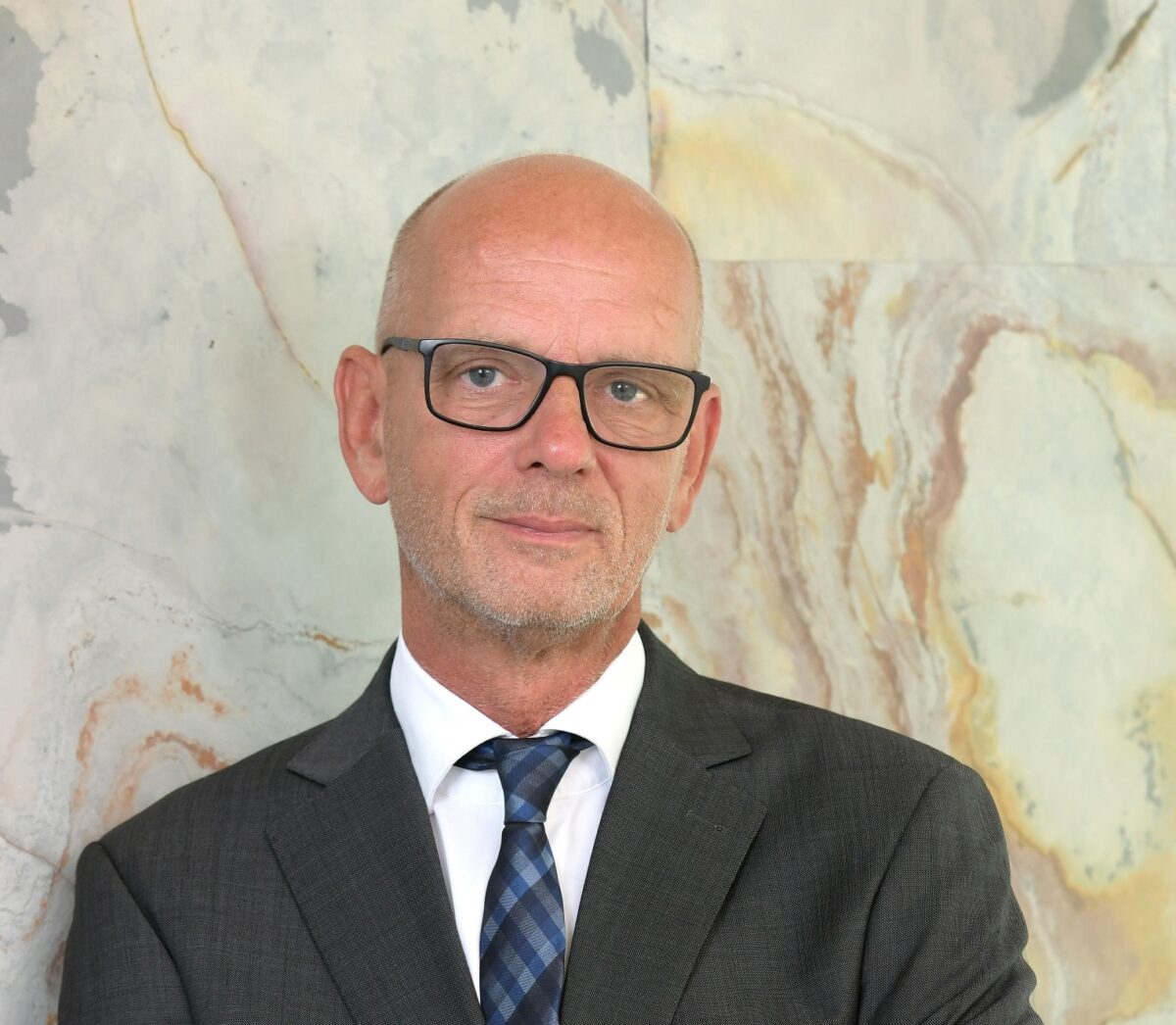
“A willingness to learn and a constant desire to experience new things” – that is how Rüdiger Dany describes the underlying principle of his career path. He considers his origins to be what led him to take the most important step in his career: his parents were retailers who had a store in Paderborn. His deep understanding and love of retail comes from that time. His “traditional” career path began at ECE, where he worked in many locations. He describes his stint in Turkey as one of the most formative. “That was a wonderful time in my life and, most significantly, the learning curve was steep,” says the CEO. “That was primarily due to the fact that I was able to switch between center management and other areas, such as development and leasing. That gave me the chance to really get to know the business from every angle, and at a very professional level at that point in time.” In 2014, he switched jobs to work with Atrium, that was one of the first stock-listed companies at that time. “While the principle remains the same at a stock-listed company, the actual operation is different compared to an owner-managed company,” he explains. His next stop was at Multi Corporation, which was somewhat of an extension of Blackstone at the time. Yet again, the special characteristics associated with the corporate form of a private equity company were what taught him the ropes. The COVID-19 crisis provided Rüdiger Dany with the next opportunity to make a change. He joined NEPI Rockcastle, where he started as the COO and now serves as the CEO.

